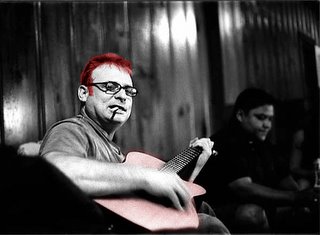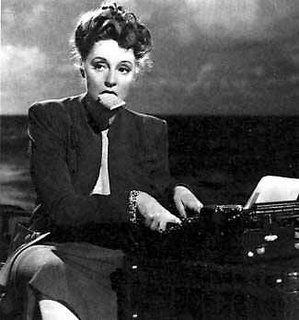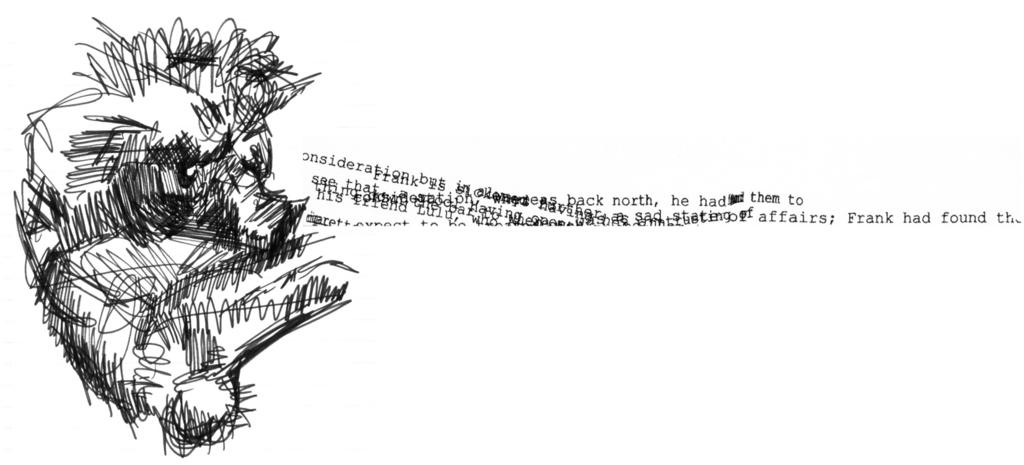 The lesbians sway to an Al Greene groove as Frank puffs another unfiltered cigarette in Chunky Monkeys, a gay bar and seemingly the only place open on a Sunday night in Durango, Colorado. Spike frowns at a candle on the bar and talks about his mouth-harp, though like many of the roughnecks in town, he’s thinking about crystal meth. Life on an oil rig, land or sea, was rife with drug tests, and unfortunately, that led to a man in need of a toke towards wickeder drugs that could be pissed out of your system quicker.
Lights flash on the black and white tile and Frank only wishes that the price of drinks was cheaper (an unheard-of four bucks a pop for a juke-joint in the middle of nowhere) and maybe that some of the cuter girls are interested in men. Alas, he also wonders why they are watching a Steven Seagal movie silently flashing on a TV set above the bar. The gay men for the most part sit in a corner wearing white Stetsons and boots (insert euphemism, here.) and holding hands. Frank thinks perhaps he should have changed his western-cut shirt tonight and straw hat.
The bar’s creed hangs nearby: “A Wise Monkey Never Monkeys With Another Monkey’s Monkey.” Kitschy. This suits the place. A fun time but mind your own bidness.
The lesbians sway to an Al Greene groove as Frank puffs another unfiltered cigarette in Chunky Monkeys, a gay bar and seemingly the only place open on a Sunday night in Durango, Colorado. Spike frowns at a candle on the bar and talks about his mouth-harp, though like many of the roughnecks in town, he’s thinking about crystal meth. Life on an oil rig, land or sea, was rife with drug tests, and unfortunately, that led to a man in need of a toke towards wickeder drugs that could be pissed out of your system quicker.
Lights flash on the black and white tile and Frank only wishes that the price of drinks was cheaper (an unheard-of four bucks a pop for a juke-joint in the middle of nowhere) and maybe that some of the cuter girls are interested in men. Alas, he also wonders why they are watching a Steven Seagal movie silently flashing on a TV set above the bar. The gay men for the most part sit in a corner wearing white Stetsons and boots (insert euphemism, here.) and holding hands. Frank thinks perhaps he should have changed his western-cut shirt tonight and straw hat.
The bar’s creed hangs nearby: “A Wise Monkey Never Monkeys With Another Monkey’s Monkey.” Kitschy. This suits the place. A fun time but mind your own bidness.  Frank is embarrassed to be miserably lowing over Lunette again, whom he blames for chasing him into this directional drilling gig; he thinks instead of Tallulah, wondering why she isn’t the gay paragon that she deserves to be. Probably because today’s generation doesn’t know her; she was always primarily a star on stage over celluloid. And yesterday’s generation know her mostly as the Black Widow in the campy old Batman series, shortly before her death.
Well, Dahlings, Frank always remembered her from the Hitchcock masterpiece, Lifeboat (1944), currently re-packaged on DVD (18 October 2005) by Fox Home Entertainment. Tallulah plays a bullish WWII reporter, whose torpedoed transport ship has left her adrift in a lifeboat with a mishmash of nine passengers and merchant seamen with one mysterious, rescued German. The cast is well rounded out, from William Bendix’s (The Babe Ruth Story; Del Ruth 1948) sympathetic portrayal of a dance-happy sailor with a gangrenous leg, to John Hodiak’s (Desert Fury; Allen 1947) devil–may-care machinist to Hume Cronyn (Cocoon; Howard 1985) as a starry-eyed radio-operator. Notably also is Canada Lee (Cry, the Beloved Country; Korda 1951), as “Joe” the black steward, he recites the Lord’s Prayer over one lost soul. He sounds, unlike any other actor Frank has ever heard, like he really understands it.
Frank is embarrassed to be miserably lowing over Lunette again, whom he blames for chasing him into this directional drilling gig; he thinks instead of Tallulah, wondering why she isn’t the gay paragon that she deserves to be. Probably because today’s generation doesn’t know her; she was always primarily a star on stage over celluloid. And yesterday’s generation know her mostly as the Black Widow in the campy old Batman series, shortly before her death.
Well, Dahlings, Frank always remembered her from the Hitchcock masterpiece, Lifeboat (1944), currently re-packaged on DVD (18 October 2005) by Fox Home Entertainment. Tallulah plays a bullish WWII reporter, whose torpedoed transport ship has left her adrift in a lifeboat with a mishmash of nine passengers and merchant seamen with one mysterious, rescued German. The cast is well rounded out, from William Bendix’s (The Babe Ruth Story; Del Ruth 1948) sympathetic portrayal of a dance-happy sailor with a gangrenous leg, to John Hodiak’s (Desert Fury; Allen 1947) devil–may-care machinist to Hume Cronyn (Cocoon; Howard 1985) as a starry-eyed radio-operator. Notably also is Canada Lee (Cry, the Beloved Country; Korda 1951), as “Joe” the black steward, he recites the Lord’s Prayer over one lost soul. He sounds, unlike any other actor Frank has ever heard, like he really understands it.

For Alfred Hitchcock, the second powerhouse behind this film, this is the first of some of his experimental, often claustrophobic films, such as the his two-hour “one-take film” Rope (1948) or Rear Window (1954) shot largely from Jimmy Stewart’s wheel-chair bound POV. Lifeboat has elements of both. There is by necessity one claustrophobic set, the boat itself. The opening shot under the credits begins with the sunken freighter’s stacks sliding under the waves, leaving only Connie in the lifeboat, looking for survivors. But instead of the duologue of Stewart and Grace Kelly, we have a whole choir of voices lyricized by the great Steinbeck. And note you won’t get the spoiler to Hitchcock’s trademark cameo here, but watch for it. It’s damned clever. Tallulah, who came down with pneumonia, played the sopping wet role without underwear, much to the distress of the cast and crew. Frank has no idea if the DVD contains any enhanced detail of Tallulah Bankhead’s snatch. But, Frank is broken in his reverie as the bartender finally notices his plight. He rows back up to the bar. The bartender is eager for repeat customers, so comps his and Spike’s drinks and also invites them to an after-party with the girls. Cool. Vodka and dildos at 2 am. You gotta love the personal touch.




0 Comments:
Post a Comment
<< Home